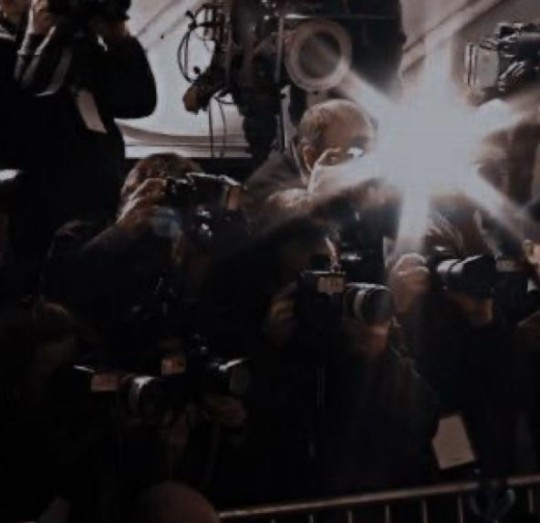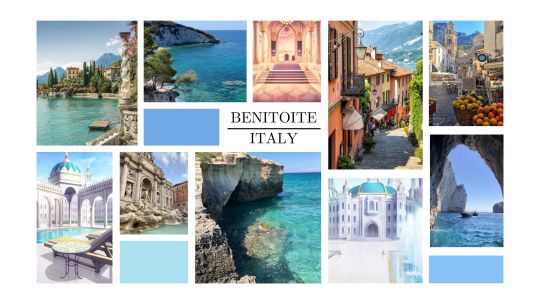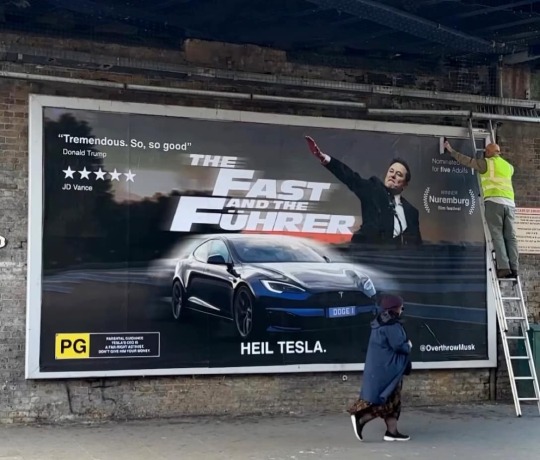#industrial unions social responsibility
Explore tagged Tumblr posts
Text
Tata Steel's JDC Electrical Maintenance Hosts Record-Breaking Blood Donation Camp
188 units collected in department’s largest ever drive Union leaders and company officials praise donors’ enthusiasm. JAMSHEDPUR – The JDC Electrical Maintenance division of Tata Steel organized a blood donation camp that set a new record for the department, collecting 188 units of blood. Sanjeev Kumar Choudhary ‘Tunnu’, President of Tata Workers’ Union, was the chief guest at the event. "This…

View On WordPress
#बिजनेस#business#corporate philanthropy Jharkhand#industrial unions social responsibility#industrial workforce blood donation#Jamshedpur corporate social initiatives#Jamshedpur healthcare support#JDC Electrical Maintenance CSR#Tata Steel blood donation#Tata Steel departmental records#Tata Steel employee welfare#Tata Workers&039; Union community engagement
0 notes
Text

Anchuli Felicia King is a Thai-Australian playwright and multidisciplinary artist. (ABC Arts: Teresa Tan)
Playwright Anchuli Felicia King had to leave Australian theatre in order to conquer it.
By Dee Jefferson
ABC Arts - 31 October 2019
•
•

David Koutsouridis is an award-winning Australian comedy writer based in Los Angeles. (Supplied)
Aussie writer on Hollywood picket lines says strike is pivotal for global entertainment industry.
By Mawunyo Gbogbo
ABC News - 7 June 2023
•
•

Our local industry is being shaped and shaken up by the international streamers, including Netflix who produced the reboot of Heartbreak High. (Netflix)
As the US actors' and writers' strike continues, how does the Australian screen industry measure up?
By Hannah Reich for Stop Everything!
ABC Arts - 19 September 2023
#Arts culture & entertainment#Australia#USA#Multiculturalism#Race relations#Social justice#Gender equity#Theatre industry#Film industry#Television & Radio industry#Screen media#Writers#Actors#Multidisciplinary artists#Media streaming companies & services#Trade Unions#Industrial relations#Industrial action#US writers’ & actors' strike#Corporate social responsibility#Globalisation & technology#AI - Artificial Intelligence#Internet culture#Anchuli Felicia King#David Koutsouridis
5 notes
·
View notes
Text
Sun in houses of Fama(408) Persona Chart


Other related post you might like:
🪄🪄🪄🪄🪄🪄🪄🪄🪄🪄
Planets in houses of Union persona chart
Sun
Moon
---------------------------------------★★
Astro observation 1
Astro observation 2
✨✨✨✨✨✨✨✨✨✨✨✨✨✨✨✨
Groom Persona Chart
Sun
Moon
Mercury
Venus
Mars
Pluto
♦️♦️♦️♦️♦️♦️♦️♦️♦️♦️♦️♦️♦️♦️♦️
Synastry/Composite Chart Observations 1
Review of my readings-1
-------*****----*****--------------*****--------
[PS: These are my personal observations. For entertainment purposes only. Have fun.]


1st House:
Your personal charisma and individuality are the focal points of fame. You are a natural-born leader whose confidence and presence draw attention. Fame is achieved through authenticity and being unapologetically yourself. People are inspired by your courage and personality, making you a trailblazer in your field. However, this placement can attract both admirers and critics, requiring a strong sense of self to handle the spotlight.
2nd House:
Fame comes from wealth, values, or material accomplishments. You may be popular for your capability to create income or for your special manner of handling money. Your talents, especially in creative or entrepreneurial endeavors, can bring fame. Stability and self-esteem are an important part of maintaining publicity. Fame may also be a result of advocating issues on financial literacy or sustainability.
3rd House:
Your fame comes from communication, teaching, or writing. You are popular because of your intelligence, wit, or ability to simplify a complex issue. Social media, public speaking, or journalism may be the source of your popularity. Relationships with siblings, neighbors, or communities will also contribute to your fame. This placement accentuates how your words have the power to inspire and influence the masses.
4th House:
Fame can be due to family history, property, or service to the family and community. You can also be noted for the conservation of traditional knowledge or service to the family or the environment. The fame is very personal and can happen later in your life. You must be very attached to your origins and be emotionally strong to carry your public persona.
5th House:
You are destined for fame in creative fields like acting, music, or art. Your playful, romantic, or dramatic nature captivates audiences. Fame might also come through children, teaching, or entertainment industries. Your ability to inspire joy and creativity in others is unparalleled. This is a highly favorable placement for widespread recognition, but it requires balancing indulgence with responsibility.


6th House:
Fame comes through hard work, service, or contributions to health and wellness. You might be recognized as a reformer in your workplace or as a healer. Your meticulous attention to detail sets you apart. Fame could stem from achievements in medicine, fitness, or other service-oriented fields. Although the spotlight may feel like a byproduct of your dedication, it ultimately serves a greater purpose.
7th House:
Your reputation may be connected with partnerships or marriage. You can be renowned through a partner, your teamwork, or by fighting for fairness and peace. The way you smooth things over can bring you fame, your appeal, or legal expertise. Partnership is one of your strong points, and people know you as a peacemaker in conflicts or arguments.
8th House:
Fame can come through transformation, taboo subjects, or working with other people's resources. You may be famous for your profundity, mysticism, or ability to uncover that which is hidden. You could even be famous in the realms of psychology, finance, or esoteric studies. Your mysterious nature and the fact that you are willing to discuss life's shadowy areas makes you memorable. This position often provides a transformative public journey.
9th House:
Recognition comes through travel, education, philosophy, or religion. Fame might be tied to teaching, writing, or promoting cultural or spiritual awareness. You are seen as a visionary or a guide who inspires others to expand their horizons. Fame here often comes with international acclaim or through ventures that connect different cultures.
10th House:
This is the traditional placement of Leo for fame and a public career. There, you dazzle others with leadership roles, where accomplishments come out in big ways, including places like politics, business, and professional work that places a demand for visibility. You have won the confidence of all as an icon commanding respect and authority figures. There's a saying, "Your integrity and ethic ensure that this is remembered over the course of time."
11th House:
Fame comes through your associations with groups, organizations, or humanitarian work. You're hailed as a champion for social causes and new developments. You can also become famous through science, technology, or activism. The need to connect through networking and collaborations aids your impact. Your connection to people on a mass scale guarantees you mass recognition.
12th House:
Your fame is spiritual or mystical. You may become famous for spiritual or creative work that affects people's subconscious mind. You can also be considered famous after your death when your work is recognized after your lifetime. This placement typically indicates fame that is associated with retreat, healing, or sacrifice to a cause.
#astro community#astro observations#astrology#astro notes#persona chart#birth chart#horoscope#fama#fama persona chart
611 notes
·
View notes
Note
What is syndicalism?
A syndicate is another term for a labor union. Syndicalism is a trend within socialism, most popular in Western countries in the early 20th century prior to the Russian Revolution, which holds that labor unions as opposed to political parties are the best catalyst for revolution, and that through the direct action of labor unions the capitalist class could be overthrown and replaced by a united working class.
The most well-known syndicalist organization is probably the Spanish anarcho-syndicalist CNT. While sometimes referred to as syndicalist, the IWW in the United States has always referred to itself as part of the industrial unionist movement and criticized the federalism of the syndicalists proper, preferring the "One Big Union" concept to a federation of smaller unions.
After the Russian Revolution, there was a massive shake-up in the syndicalist movement, with many former syndicalists choosing to adopt Bolshevism instead due to the sudden success of the Bolsheviks in Russia. This allowed the anarcho-syndicalists to gain greater prominence within the wider syndicalist movement, to the point where today you hardly see any non-anarchist syndicalists. After the end of World War II, as living standards in the capitalist West increased due to the consolidation of imperialism and the advent of neocolonialism, Western labor unions lost much of their radicalism and became largely subsumed into standard capitalist labor relations. While organizations such as the CNT and IWW still exist, they are shadows of their former selves.
Syndicalism post-1917 has defined itself mainly in opposition to Leninist concepts such as the dictatorship of the proletariat and central economic planning. Syndicalists believe that workplaces should be governed directly by their workers through their respective unions and that cooperation between unions should be mediated through mutual agreement rather than coordinated by a central authority.
In contrast, Marxist-Leninists, while in no way denying the benefits of labor unions which have always played a significant and positive role in socialist nations, believe that workplaces should ultimately be subordinate to the interests of the people as a whole and that the DotP has a responsibility to coordinate economic activity for the benefit of all of society. That is to say, if the actions of one workplace have a deleterious effect elsewhere, then those actions must be prevented even if they were agreed upon by the workers within that specific workplace.
228 notes
·
View notes
Text
STARCROSSED

SOCIAL MEDIA/NEWS chapter 1: Appaled
NEXT CHAPTER.
MASTERLIST
Summary: Two people and the rest of the world discover that their partners ain't shit
FACECLAIM: The extraordinary Tems
THIS IS A WORK OF FICTION. THE BEHAVIOUR OF THE CHARACTERS DOES NOT REFLECT THE REAL PERSONALITIES OF THE INDIVIDUAL UPON WHOM THEY ARE BASED. I AM MERELY BORROWING THEIR PHYSICAL LIKENESS AND THE PROFESSION THEY HAVE FOR THE SAKE OF THIS NARRATIVE
TW: Cringiness from the writer, grammatical errors (have mercy english is my semi firsr language)

Heartbreak in Hollywood: Renee Bennett’s Devastating Betrayal by Boyfriend Ben Field and Best Friend Leah Dawn
By: Sarah Caldwell | Celebrity Insider
In a shocking twist that has left fans reeling, beloved actress Renee Bennett has found herself at the center of a scandal that could rival any of her on-screen dramas. The star of the upcoming epic “Northern Winds” has been blindsided by the ultimate betrayal—her boyfriend, model Ben Field, and her best friend, influencer Leah Dawn, were caught in a scandalous embrace that no one saw coming.
The Scandal Unfolds: A Shocking Revelation
Renee Bennett, who recently returned from a grueling five-month shoot in Norway, had been looking forward to reuniting with her boyfriend, Ben Field. The couple, who had been dating for nearly two years, were widely regarded as one of the most stable pairs in the industry. But all that came crashing down when Ben and Leah were spotted kissing in New York City, a moment that has sent shockwaves through Hollywood.
Paparazzi captured the scandalous moment late last week, with Ben and Leah sharing a passionate kiss outside an upscale Manhattan restaurant. The photographs, which quickly went viral, have left fans in disbelief and sparked a media frenzy. To make matters worse, Renee had just returned to the U.S., believing she was coming home to her loving boyfriend—only to discover this devastating betrayal.
Best Friend Betrayal: Leah Dawn’s Double Life
What makes this betrayal even more heartbreaking is that Leah Dawn wasn’t just any woman—she was Renee’s closest confidante. The two had been inseparable for years, often seen vacationing together and supporting each other through the ups and downs of fame. Leah, a well-known social media influencer, had built her brand on the image of friendship and loyalty, making this act of treachery all the more shocking.
Leah Dawn was also dating F1 driver Charles Leclerc, a relationship that had its own share of drama. Rumors swirled that Charles was on the verge of proposing to Leah, but according to a recent blind item, his mother was reportedly not in favor of the union. The news of Leah’s infidelity has now thrown that relationship into question, leaving fans to wonder if the engagement is now off the table.
Renee’s Response: Silence Speaks Volumes
Since the scandal broke, Renee Bennett has maintained a dignified silence. Friends of the actress describe her as “heartbroken” and “utterly blindsided” by the betrayal. Renee, who has always been known for her professionalism and grace, is reportedly focusing on her career and taking time to process the situation away from the public eye.
“Renee is devastated,” a close friend revealed. “She never imagined that the two people she trusted most would betray her like this. Right now, she’s just trying to come to terms with what happened and figure out her next steps.”
Where Do They Stand? The Aftermath for All Involved
As for Ben Field and Leah Dawn, neither has made a public statement about the scandal. However, insiders suggest that both are facing significant fallout. Ben’s modeling contracts may be in jeopardy as brands distance themselves from the drama, and Leah has lost a significant number of followers on social media as the public turns against her.
Charles Leclerc has remained silent amid the scandal, leaving fans wondering about the status of his relationship with Leah. The F1 driver has not been seen with Leah since the photos emerged, and sources close to the couple suggest that the situation has left him reeling. With rumors of a potential engagement now in doubt, it’s unclear whether Charles will continue his relationship with Leah or if this scandal has irreparably damaged their romance.
A Love Story Shattered
This heartbreaking turn of events has left fans and Hollywood insiders alike questioning how such a betrayal could happen. Renee Bennett, who has always been the picture of strength and grace, now finds herself facing one of the most challenging moments of her life. As she navigates this painful chapter, her fans are rallying behind her, offering support and urging her to stay strong.
While the future remains uncertain for all involved, one thing is clear: Renee Bennett’s story is far from over. This betrayal may have shattered her trust, but it has also shown the world just how resilient she truly is. And as she steps into the next phase of her career, all eyes will be on Renee to see how she rises above the heartbreak and emerges stronger than ever.



Author's Note: And I'm back as I promised how do you find the social media chapters, advices are always welcome
#black!reader#f1 smau#f1 x black!reader#black!oc#f1 x reader#charles leclerc#charles leclerc x reader#charles leclerc x black!reader
231 notes
·
View notes
Text
Inside the Yeager Empire : Power, Scandal, and Legacy

Art by @sweetpie-ina
The Yeagers are no ordinary family. With roots planted deep in both aristocracy and ambition, the House of Yeager has long been a prominent name in Paradis society. Behind the name is a tangled web of brilliance, controversy, and a generational divide that continues to both fascinate and unsettle the public.
At the helm of the family is Dr. Grisha Yeager, a towering figure in the world of medicine and public service. Formerly a renowned university professor, Grisha now serves as the Minister of Health while also overseeing an expansive medical empire that includes the Yeager Medical Instruments Company, a prestigious private university for medical sciences, and the state-of-the-art Yeager Memorial Hospital.
Grisha's personal life has been just as eventful as his professional career. His first marriage to Dina Fritz, a woman of old money and noble lineage, created headlines not only for the union of intellect and royalty but also for its eventual unraveling. Together, they had one child—Zeke Yeager.
Zeke Yeager, the eldest son, inherited his father's intellect and his mother's quiet poise. A gifted physician and avid reader, Zeke is the golden boy of the Yeager lineage. He’s often seen as the epitome of responsibility—polished, eloquent, and disciplined. Despite a somewhat distant relationship with his father, Zeke has maintained a respectable public image. His hobby, baseball, is both a leisure and a symbol of his methodical, calculated nature.
After divorcing Dina, Grisha married Carla—a woman once employed as a household servant. Her transformation from commoner to aristocrat made waves across elite social circles. Her kindness and grace won over many, but whispers of envy and derision followed her for years. Nevertheless, Carla Yeager has come to define elegance on her own terms, leading charity galas, arts foundations, and women’s health initiatives. She remains a favorite among the press and socialites alike.
The second son of Grisha, and only child of Carla, Eren Yeager is the family's most polarizing figure. Brilliant yet rebellious, Eren was the talk of the town in his teenage years—not for his academic prowess (which he had in spades), but for his penchant for mischief. He was infamously labeled the "failed experiment" of the Yeager Empire after rumors of underground street racing, school suspensions, and even an alleged shooting incident that left a friend in a coma.
But Eren's story didn’t end there, Now approaching his 30s, Eren has evolved into a mechanical savant. His unparalleled skills in engineering, particularly in aviation mechanics, have made him indispensable in the aeronautical field. He has launched his own tech firm and collaborates with international defense and aerospace industries, proving that genius comes in many forms—even those dismissed too soon.
Despite their accomplishments, the Yeagers are no strangers to scandal. The whispered tales of favoritism between siblings, Carla's past as a servant, and the turbulent rivalry between Eren and Zeke have kept tabloids busy for years. Perhaps the most shocking was the alleged shooting incident during Eren’s youth, a claim that was quickly buried yet never forgotten. Some insiders speculate that the scandal was silenced to preserve the family's reputation.
Yet what fascinates the public most is the question of legacy. Who will inherit the Yeager name—not just its wealth, but its influence? Will it be Zeke, the picture of control and intelligence? Or Eren, the once-rebellious son who forged his own empire? the Yeager sons chart separate paths in drastically different worlds, one thing remains clear: the Yeager Empire is more than a family—it is an institution, for better or worse.
Stay tuned. The saga is far from over.
---
#little chick au#eremika rekindled heart au#eremika au#attack on titan#eremika#eren jaeger#mikasa ackerman#eren jaeger au#eren x mikasa#eren yeager#eren yeager au#eren au#attack on titan au#aot#aot au#snk#shingeki no kyojin#grisha jaeger#grisha yeager#carla jaegar#carla yeager#zeke yeager#zeke jaeger#shingeki no kyoujin#fanart#artists on tumblr#art
54 notes
·
View notes
Text
Corporate Bullshit

I'm coming to BURNING MAN! On TUESDAY (Aug 27) at 1PM, I'm giving a talk called "DISENSHITTIFY OR DIE!" at PALENQUE NORTE (7&E). On WEDNESDAY (Aug 28) at NOON, I'm doing a "Talking Caterpillar" Q&A at LIMINAL LABS (830&C).

Corporate Bullshit: Exposing the Lies and Half-Truths That Protect Profit, Power, and Wealth in America is Nick Hanauer, Joan Walsh and Donald Cohen's 2023 book on the history of corporate apologetics; it's great:
https://thenewpress.com/books/corporate-bullsht
I found out about this book last fall when David Dayen reviewed it for the The American Prospect; Dayen did a great job of breaking down its thesis, and I picked it up for my newsletter, which prompted Hanauer to send me a copy, which I finally got around to reading yesterday (I have gigantic backlog of reading):
https://pluralistic.net/2023/10/27/six-sells/#youre-holding-it-wrong
The authors' thesis is that the business world has a well-worn playbook that they roll out whenever anything that might cause industry to behave even slightly less destructively is proposed. What's more, we keep falling for it. Every time we try to have nice things, our bosses – and their well-paid Renfields – dust off their talking points from the last go-round, do a little madlibs-style search and replace, and bust it out again.
It's a four-stage plan:
I. First, insist that there is no problem.
Enslaved people are actually happy. Smoking doesn't cause cancer. Higher CO2 levels are imaginary and they're caused by sunspots and they're good for crop yields. The hole in the ozone layer is only a problem if you foolishly decide to hang around outside (this is real!).
II. OK, there's a problem, but it's your fault.
An epidemic of on-the-job maimings is actually an epidemic of sloppy workers. A gigantic housing crash is really a gigantic cohort of greedy, feckless borrowers. Rampant price gouging is actually a problem of too much "spending power" (that is, "money") in the hands of working people.
III. Any attempt to fix this will make it worse.
Equal wages for equal work will cause bosses to fire women and people of color. Protecting people with disabilities will cause bosses to fire disable people. Minimum wages will cause bosses to buy machines and fire "unskilled" workers. Gun control will only increase underground gun sales. Banning carcinogenic pesticides will end agriculture as we know and we'll all starve to death.
IV. This is socialism.
Income tax is socialism. Estate tax is socialism. Medicare and Medicaid are socialism. Food stamps are socialism. Child labor laws are socialism. Public education is socialism. The National Labor Relations Act is socialism. Unions are socialism. Social security is socialism. The Fair Labor Standards Act is socialism. Obamacare is socialism. The Civil Rights Act is socialism. The Occupational Health and Safety Act is socialism. The Family Medical Leave Act is socialism. FDR is a socialist. JFK is a socialist. Lyndon Johnson is a socialist. Carter is a socialist. Clinton is a socialist. Obama is a socialist. Biden is a socialist (Biden: "I beat the socialist. That's how I got the nomination").
Though this playbook has been in existence since the nation's founding, the authors point out that from the New Deal until the Reagan era, it didn't get much traction. But starting in the Reagan years, the well-funded network of billionaire-backed think-tanks, endowed economics chairs, and latter-day propaganda vehicles like Prageru breathed new life into these tactics.
We can see this playing out right now as the corporate world scrambles for a response to the Harris campaign's proposal to address price-gouging. Reading Matt Stoller's dissection of this response, we can see the whole playbook on display:
https://www.thebignewsletter.com/p/monopoly-round-up-price-gouging-vs
First, corporate apologists insisted that greedflation didn't exist, despite the fact that CEOs kept getting on earnings calls and boasting to their investors about how they were using the excuse of inflation to jack up prices:
https://pluralistic.net/2023/03/11/price-over-volume/#pepsi-pricing-power
Or the oil CEOs who boasted that the Russian invasion of Ukraine gave them cover to just screw us at the pump:
https://pluralistic.net/2022/03/15/sanctions-financing/#soak-the-rich
There are all these out-in-the-open commercial entities whose sole purpose is to "advise" large corporations about their prices, which is just a barely disguised euphemism for price-fixing, from meat-packing:
https://pluralistic.net/2023/10/04/dont-let-your-meat-loaf/#meaty-beaty-big-and-bouncy
To rents:
https://pluralistic.net/2024/07/24/gouging-the-all-seeing-eye/#i-spy
That's stage one: "there's no problem." Stage two is "it's your fault." That's Larry Summers and co insisting that a couple of stimulus checks a couple years ago are responsible for inflation, because it gave you too much "buying power," and so the only possible fix is to jack up interest rates and trigger mass layoffs and sharp wage decreases across the economy:
https://pluralistic.net/2022/12/14/medieval-bloodletters/#its-the-stupid-economy
Stage three is "any attempt to fix this will make it worse." When Isabella Weber pointed out that there was a long history of price-controls being used to fight price-gouging, corporate apologists lost their minds and brigaded her, calling her all kinds of nasty names and insisting that her prescription didn't even warrant serious discussion, because any attempt to control prices would destroy the economy:
https://www.theglobeandmail.com/podcasts/lately/article-the-millennial-economist-who-took-on-the-world/
You may recognize this as cousin to the response to rent control proposals, which inevitably trigger a barrage of economists screaming that this will not work and will actually reduce the housing supply and drive up prices, which is true, provided that you ignore all evidence and history:
https://pluralistic.net/2023/05/16/mortgages-are-rent-control/#housing-is-a-human-right-not-an-asset
And stage four is "this is socialism." Look, I am a literal card-carrying member of the Democratic Socialists of America and I can assure you, Kamala Harris is not a socialist (and more's the pity). But that didn't stop the most eminently guillotineable members of the investor class from hair-on-fire, ALL-CAPS denunciations of the Harris proposal as SOCIALISM and Harris herself as a COMMUNIST:
https://twitter.com/Jason/status/1824580470052725055
The author's thesis is that by naming the playbook and giving examples of it – for example, showing how the "proof" that minimum wage increases will destroy jobs was also offered as "proof" not to abolish slavery, ban child labor, add fireproofing to textile factories, and pay women and Black people the same as white guys – we can vaccinate ourselves against it.
Certainly, we've reached a moment where the public is increasingly skeptical of claims that we can't fix anything because the economists say that this is the best of all possible worlds, and if that means that we're all going to boil to death in our own skin, so be it:
https://pluralistic.net/2022/10/27/economism/#what-would-i-do-if-i-were-a-horse
In other words, after 40 years of subordinating politics to economics, there's a resurgence of belief in politics – that is, doing stuff – rather than hunkering down and waiting for the technocrats to fix everything:
https://www.programmablemutter.com/p/seeing-like-a-matt
Corporate Bullshit is a brisk and bracing read – I got through it in about an hour in my hammock yesterday – and, in laying out the bullshit playbook's long history of nonsensical predictions and pronouncements, it does make a very good case that we should stop listening to people who quote from it.

If you'd like an essay-formatted version of this post to read or share, here's a link to it on pluralistic.net, my surveillance-free, ad-free, tracker-free blog:
https://pluralistic.net/2024/08/19/apologetics-spotters-guide/#narratives
#pluralistic#narratives#lakoff#joan walsh#david cohen#nick hanauer#apologetics#bullshit#history#books#reviews#gift guide
245 notes
·
View notes
Text
Ikepri reigns as real life countries
Hi there again my dear Belles. As we all know, ikemen prince reigns ar based on real life countries, or at least, that's what it looks like, specially knowing character's names, I mean, we have Chevalier (french), Von Obsidian (dutch - german), Ricci (italian), Yves (french), Kagari Amagase (japanese)... But, even though some kingdoms are easily "recognised" in real life countries, there are some others that are not that clear. That's why I've decided to match each kingdom to a country. This is just my opinion, so feel free to expose yours. Hope you enjoy little rabbits!!!!!!
Rhodolite - France

Romantic and Elegant Atmosphere: France is often seen as the epitome of romance, known for its picturesque landscapes, charming cafés, and the enchanting ambiance of cities like Paris. Rhodolite reflects this romantic and elegant atmosphere through the bookshops, the taverns, the little plaza with the fountain, the market, the pastisseries, the landscapes, the town… creating a kingdom where love stories unfold against a backdrop of beautiful scenery and intimate settings. The kingdom features elements like festivals or traditions that celebrate love, happiness, freedom and union.
Art, Fashion, Culture and roses: France has a rich artistic heritage, being the birthplace of influential movements such as Impressionism and home to iconic fashion houses. Rhodolite emphasizes this connection by showcasing characters who pay close attention to this type of visual and external things, such as Nokto with the jewelry, fashion, perfumes, etc. The presence of roses as a symbol of beauty and love could be significant in Rhodolite, with gardens filled with rose varieties and floral motifs present in everything, echoing the French appreciation for aesthetics, and also, it is known that France’s national flower is the rose.
Royal Legacy and Noble Etiquette: France’s history is steeped in royal legacy, with grand palaces, elaborate courts, and a system of noble etiquette that has influenced many cultures. Rhodolite portrays a kingdom that maintains these traditions, highlighting a royal family that embodies elegance, grace, and responsibility. The interactions among the nobility reflect the formal customs and social hierarchies reminiscent of historical French courts, adding depth to character relationships and political dynamics.
Architectural Beauty and Palaces: French architecture is renowned for its beauty, with iconic structures like the Eiffel Tower, the Louvre, and the palaces of Versailles and Fontainebleau. Rhodolite showcases stunning architectural designs, blending various styles like Gothic, Baroque, and Rococo, for example seen in the palace. The kingdom is dotted with grand mansions and beautifully designed public spaces, reflecting the importance of architectural beauty in French culture and serving as a backdrop for significant events and gatherings.
Revolutionary Spirit: France is known for its revolutionary spirit, marked by events like the French Revolution, which reshaped the nation and inspired movements worldwide. Rhodolite embodies this revolutionary ethos by portraying characters who advocate for change, challenge the status quo, and strive for social justice. The kingdom is depicted as a place where ideas of liberty, equality, and fraternity resonate, driving the narrative of personal and societal transformation.
Obsidian - Germany

Strength, discipline and Military Power: Germany is historically recognized for its strong military tradition and disciplined approach to governance and society. Obsidian embodies these qualities by depicting a kingdom with a robust military presence, emphasizing values such as honor, loyalty, and strategic prowess. Characters in Obsidian reflect the disciplined nature associated with German culture, portraying dedication to duty and strength in adversity.
Industrial Powerhouse and Innovation: Germany is renowned for its industrial strength, being home to leading companies in sectors like automotive, engineering, and technology. Obsidian highlights this aspect by showcasing a kingdom that values innovation and technological advancement, I mean they “invented” the guns. The presence of skilled craftsmen, inventors, and engineers are prominent, illustrating a society that thrives on progress and economic power, mirroring Germany's historical emphasis on efficiency and quality.
Cold and Austere Atmosphere: Germany’s cultural identity often includes a perception of coldness or stoicism, reflected in its architectural styles, weather, and social interactions. Obsidian captures this austere atmosphere through its landscapes, character interactions, and overall aesthetic. The kingdom is characterized by a serious demeanor, where emotions are expressed more subtly, especially fear, emphasizing strength and resilience over overt displays of warmth.
Central European Strategic Position: Germany’s central location in Europe has historically made it a crossroads for trade, culture, and politics. Obsidian represents this strategic significance by showcasing its role as a threat for other kingdoms that surround the obsidianites. Characters navigate complex political landscapes, reflecting Germany's historical importance in shaping European dynamics and alliances.
Architectural and Cultural Grandeur: Germany boasts a rich architectural heritage, with castles, cathedrals, and modern structures that showcase its historical and cultural grandeur. Obsidian features majestic buildings, representing the kingdom’s power and strength.
Benitoite - Italy

Luxurious Lifestyle and Grandeur: Italy is synonymous with luxury and grandeur, known for its opulent fashion, exquisite art, and historical monuments. Benitoite embodies this luxurious lifestyle by portraying a kingdom filled with elegant palaces, lavish celebrations, and a strong emphasis on beauty and aesthetics. Characters dress in fine fabrics and adorn themselves with beautiful accessories, reflecting Italy’s rich cultural heritage in fashion and art.
A nation benefited by the sea: Italy’s long coastline has significantly influenced its culture, economy, and way of life. Benitoite reflects this connection to the sea through its geography, highlighting vibrant coastal cities and a thriving maritime culture. The kingdom showcases bustling ports, trade routes, and a lifestyle that embraces the ocean, with characters engaging in activities like fishing, sailing, and enjoying the beach, mirroring Italy’s deep-rooted relationship with the Mediterranean Sea.
Gastronomy and Sophistication (the best of the best): Italian cuisine is renowned worldwide for its richness and diversity, emphasizing high-quality ingredients and sophisticated flavors. Benitoite emphasizes this culinary heritage by showcasing elaborate feasts, traditional cooking methods, and a strong focus on fresh, local produce. Characters engage in the art of cooking, like Silvio when he swapped bodies with Rio, celebrating gastronomy as an essential part of their culture, reflecting Italy’s status as a culinary capital.
"The cradle of commerce": Historically, Italy has been a central hub for commerce and trade, particularly during the Renaissance when cities like Venice and Florence thrived economically. Benitoite embodies this spirit of commerce, showcasing vibrant marketplaces, trade fairs, and a culture that values entrepreneurship and innovation, I mean, look at Silvio, nothing more to add. Characters are depicted as merchants, traders, or skilled artisans, highlighting the importance of commerce in the kingdom’s prosperity.
Rich Alcoholic Heritage: Italy is famous for its wine production, with regions like Tuscany and Piedmont known for their exceptional vineyards and rich traditions surrounding wine-making. Benitoite reflects this alcoholic heritage by incorporating wine and other alcoholic beverages culture into its narrative, showcasing characters who appreciate fine liqueurs, attend harvest festivals, and engage in alcohol making traditions. This connection to Italy’s rich alcoholic heritage could also be reflected in the kingdom's celebrations, where drinking plays a significant role in social gatherings.
Jade - The Netherlands

Natural Beauty and Green Landscapes: The Netherlands is renowned for its picturesque landscapes, characterized by lush green fields, beautiful flower gardens (notably tulip fields), and tranquil waterways. Jade embodies this natural beauty, showcasing a kingdom filled with vibrant flora and serene environments, where characters are deeply connected to nature. The kingdom features breathtaking gardens, parks, and countryside, reflecting the Dutch appreciation for their scenic surroundings.
Rich Herbal Traditions and Innovation: The Netherlands has a long history of herbal medicine and innovation in horticulture, with a significant focus on cultivating plants for medicinal and culinary purposes. Jade highlights this aspect by incorporating herbal traditions, where characters utilize local herbs for healing, cooking, or crafting potions. The kingdom is portrayed as a center for herbal innovation, showcasing advanced gardening techniques and a thriving market for medicinal herbs, mirroring the Dutch reputation in this field.
Cultural Heritage, Tolerance and Neutrality: The Netherlands is known for its cultural diversity and historical commitment to tolerance and neutrality in international affairs. Jade reflects this spirit by portraying a kingdom that embraces various cultures (obsidianite refugees) and ideas, fostering an environment of inclusivity and understanding. Characters from different backgrounds coexist peacefully, contributing to a rich tapestry of traditions, beliefs, and customs within the kingdom.
Connected Communities: The Dutch are famous for their strong sense of community and interconnectedness, often seen in their cooperative agricultural practices and social networks. Jade emphasizes this sense of connection by showcasing tight-knit communities where people work together for the common good, support each other, and celebrate local traditions. The kingdom features festivals, markets, and communal events that highlight the importance of relationships and collaboration among its inhabitants.
Wildlife: The Netherlands is home to a diverse array of wildlife, including various bird species, insects, and unique ecosystems like marshes and wetlands. Jade reflects this biodiversity by incorporating elements of wildlife into its narrative, where characters have a deep respect for nature and actively engage in conservation efforts. The kingdom showcases natural habitats and characters who are passionate about protecting the environment, mirroring the Dutch commitment to sustainability and conservation.
Tanzanite - Persia

Historical Influence and Rich Heritage: Persia has a rich historical legacy, with significant contributions to art, literature, and science throughout the ages. Tanzanite embodies this heritage by portraying a kingdom that honors its past through storytelling, art, and tradition. The kingdom includes historical sites, ancient temples, and a culture that celebrates its roots, reflecting the grandeur of Persian civilization and its impact on the world.
Persian Aesthetics and Ornamentation: Persian art is renowned for its intricate designs, vibrant colors, and detailed craftsmanship. Tanzanite captures this aesthetic through its architecture, clothing, and decorative arts. The kingdom features elaborate palaces adorned with mosaics, beautiful gardens inspired by Persian design, and characters dressed in richly embroidered garments, showcasing the beauty and sophistication associated with Persian culture.
Philosophy and Mysticism: Persian culture has a long tradition of philosophical thought and mysticism, with influential poets and thinkers like Rumi and Omar Khayyam exploring themes of love, spirituality, and the human experience. Tanzanite reflects this depth by incorporating elements of philosophy and mysticism into its narrative, I mean, Azel is portrayed as a God. Characters engage in discussions about existence, love, and magic, drawing inspiration from Persian literature and thought, creating a reflective and introspective atmosphere in the kingdom.
Trade and Cultural Exchange: Historically, Persia was a vital hub for trade along the Silk Road, facilitating the exchange of goods, ideas, and cultures. Tanzanite could mirror this aspect by showcasing a vibrant marketplace where diverse cultures converge, highlighting the kingdom's role as a center for commerce and cultural interaction. Characters might be seen as traders, merchants, or travelers who bring different perspectives and traditions to the kingdom, enriching its cultural tapestry. Let's not forget the trade relationship between Azel and Silvio...
Economy: Persia was known for its wealth derived from trade, agriculture, and craftsmanship. Tanzanite could have reflected this economic strength by portraying a kingdom that values trade and innovation. The kingdom might have thrived on the production of unique goods, such as textiles, spices, or artisan crafts, showcasing a dynamic economy that supports its inhabitants and fosters prosperity. But the reality that they have shown us is that they are not as economically powerful as they seem. It almost looks like the greater houses are pretty rich while the rest of the population might live in poverty.
Kogyouku - Japan

Cultural Heritage and Tradition: Japan has a rich cultural heritage characterized by traditional arts, crafts, festivals, and rituals that have been preserved for centuries. Kogyoku seems to embody this sense of tradition through its customs, ceremonies, and the way its inhabitants celebrate their history. The kingdom highlights tea ceremonies, calligraphy, and traditional music, emphasizing the importance of honoring one’s ancestors and cultural practices, thus creating a deep sense of identity.
Sakura trees: Sakura (cherry blossom) trees are iconic in Japanese culture, symbolizing beauty, the transient nature of life, and the arrival of spring. Kogyoku incorporates these trees into its landscape, creating scenes of breathtaking beauty during the cherry blossom season. Characters participate in hanami (flower-viewing) festivals, celebrating the fleeting beauty of the blossoms, which aligns with the Japanese appreciation for nature and the passing of time.
Japanese aesthetic: The Japanese aesthetic emphasizes simplicity, naturalness, and the beauty of imperfection, often seen in art forms like wabi-sabi. Kogyoku reflects this aesthetic through its architecture, gardens, and crafts. The kingdom features tranquil gardens with carefully placed rocks and water elements, understated yet elegant clothing, and art that embraces asymmetry and simplicity, capturing the essence of Japanese beauty.
Civil war: The Sengoku period (1467-1603) was a time of social upheaval, political intrigue, and military conflict in Japan, characterized by powerful clans vying for control. Kogyoku draws inspiration from this historical context, incorporating themes of rivalry, strategy, and the quest for power among noble families. Characters embody the spirit of samurai warriors, showcasing their loyalty, courage, and the complexities of allegiance during a tumultuous era, enriching the kingdom’s narrative with historical depth.
Focus on Honor: Honor is a central tenet of Japanese culture, particularly within the samurai ethos. Kogyoku reflects this focus on honor through its characters’ values, emphasizing loyalty, duty, and respect. The kingdom has a code of conduct that guides the behavior of its inhabitants, with stories centered around noble sacrifices and the importance of maintaining one’s honor in the face of challenges. This aspect resonates deeply with the samurai legacy, highlighting the significance of integrity and personal honor within the kingdom.
Achroite - Sweden/Finland/Iceland

Cultural Coldness and Reserve: The Nordic countries are often perceived as having a cultural disposition characterized by a certain reserve or coldness, particularly in social interactions. Achroite embodies this aspect through its characters, who exhibit a calm and composed demeanor, reflecting the understated communication style of the region. This cultural coldness can be portrayed as a strength, emphasizing the value of inner strength and emotional control, which allows for deep connections beneath the surface.
Commitment to Justice and Equality: Sweden, Finland, and Iceland are known for their strong commitment to social justice, equality, and human rights. Achroite reflects this ethos by showcasing a kingdom that prioritizes fairness and equal opportunities for all its citizens. The kingdom has laws and systems that are pretty strict, emphasizing the importance of social equity in governance and community life, creating a narrative centered around progressive values.
Strong-Minded and Resilient Individuals: The people of the Nordic countries are often characterized by their resilience and strong-mindedness, adapting to the challenges of their harsh environments. Achroite embodies this quality through its characters, who display determination, independence, and resourcefulness in overcoming obstacles. The kingdom might celebrate stories of individuals who stand firm in their beliefs and face adversity with courage, emphasizing the strength of character that defines its inhabitants.
Wisdom and Rationality: Nordic cultures value education, critical thinking, and rational decision-making, often relying on informed discourse and logical reasoning to address societal issues. Achroite reflects this emphasis on wisdom and rationality by portraying characters who approach challenges thoughtfully and analytically. The kingdom is depicted as a center for learning and intellectual exchange, where knowledge and wisdom are cherished, fostering a culture of informed dialogue and progress.
Law and Order as Pillars of Society: In the Nordic countries, law and order are fundamental to maintaining a peaceful and stable society. Achroite mirrors this principle by showcasing a kingdom where justice, rules, and civic responsibility are highly valued. The narrative highlights the significance of laws that promote societal harmony and the role of institutions in upholding order. Characters take on roles as guardians of justice, working to ensure that the kingdom remains a safe and orderly place for all its inhabitants.

And that's it my loves!!!! Hope you've enjoyed this quite long but interesting post!!!! Bibble loves you XOXO.
#ikemen prince#cybird#cybird ikemen#ikemen series#rhodolite#obsidian#benitoite#jade#tanzanite#kogyoku#achroite#belle#ikemen games#ikeprince#ikepri
141 notes
·
View notes
Text
Also preserved in our archive
Y'all know I'm not one to save celebrity news without reason: There's some excellent analysis done in this article about air quality and airborne disease.
Macbeth: cancelled due to “illness” The eagerly anticipated production of Macbeth, starring David Tennant in the title role at the Harold Pinter Theatre, has cancelled four consecutive performances this week due to “illness within the company.” The latest cancellation, announced just two hours before curtain, left audience members disappointed, including those who had traveled internationally and rearranged work schedules.
Among affected ticket holders, some expressed frustration on social media about the late notice and lack of clarity. Twitter user @clairebobcat voiced a common sentiment:
"Ticket holders were notified at 5:45 this eve. Really short notice considering illness has been ongoing since Friday. All best wishes to the cast—illness can’t be helped, but very shoddy treatment of ticket holders. Travel money & Annual leave wasted."
The ongoing cancellations reflect broader challenges facing the theatre industry in the ongoing Covid-19 pandemic.
The arts still in crisis due to Covid A survey by Theatre Washington reported that while 58% of Washington, D.C. theatre patrons once attended performances six or more times per year, only 31% have done so since reopening. Almost half of patrons surveyed now attend just three times or fewer, and nearly 68% cited fear of Covid-19 exposure as a primary reason for staying away.
The UK is facing unprecedented rates of long-term illness due to long Covid, a condition marked by symptoms including post-exertional malaise, cognitive impairment, and cardiopulmonary dysfunction.
Public health data shows that over two million people in the UK are affected by long COVID, with more than 10% of Covid cases resulting in prolonged symptoms.
High-profile performers, including Alyssa Milano and Matt McGorry, have spoken publicly about their struggles with long Covid, shedding light on the profound and lasting impact of the illness.
Protect the Heart of the Arts In response to these issues, Protect the Heart of the Arts, an advocacy organisation for members of the performance community with long COVID or who are clinically vulnerable, has offered to donate a HEPA air purification system to the Harold Pinter Theatre, which is staging Macbeth.
Glenda from the group told the Canary:
"It’s unsustainable, unethical, and we can’t afford to accept it as occupational: our employers, unions, regulatory bodies and politicians have to address the ongoing SARS-CoV-2 pandemic head-on.
Beyond key vectors (hospitals, schools, prisons), creatives are uniquely vulnerable, especially within live formats, alongside venue staff and audiences; not to mention all within said categories who’ve been marginalised, nor the walk-back of digital programming."
The organisation argues that improved air quality could help reduce health risks for cast, crew, and audiences, potentially preventing further cancellations.
Covid isn’t over – as Macbeth inadvertently shows “We may not know the exact illness affecting the Macbeth cast, but we do know that Covid is a serious vascular disease requiring extended recovery times,” noted Charles Waltz, founder of Protect the Heart of the Arts:
"Reinfections weaken immunity to other pathogens, so without measures like air purification and adequate recovery time, we risk ongoing illness cycles that could impact health and stability across the industry. Clean air and flexible recovery policies are essential to protect the performance community’s long-term health."
#mask up#covid#pandemic#public health#wear a mask#covid 19#wear a respirator#still coviding#coronavirus#sars cov 2#stage play#stage management#theatre#covidー19#covid conscious#covid is airborne#covid pandemic#covid isn't over#covid19#covid news#clean air
123 notes
·
View notes
Text
Bernie Would Have Won
By Krystal Ball
There are a million surface-level reasons for Kamala Harris’s loss and systematic underperformance in pretty much every county and among nearly every demographic group. She is part of a deeply unpopular administration. Voters believe the economy is bad and that the country is on the wrong track. She is a woman and we still have some work to do as a nation to overcome long-held biases.
But the real problems for the Democrats go much deeper and require a dramatic course correction of a sort that, I suspect, Democrats are unlikely to embark upon. The bottom line is this: Democrats are still trying to run a neoliberal campaign in a post-neoliberal era. In other words, 2016 Bernie was right.
Let’s think a little bit about how we got here. The combination of the Iraq War and the housing collapse exposed the failures and rot that were the inevitable result of letting the needs of capital predominate over the needs of human beings. The neoliberal ideology which was haltingly introduced by Jimmy Carter, embraced fully by Ronald Reagan, and solidified across both parties with Bill Clinton embraced a laissez-faire market logic that would supplant market will for national will or human rights, but also raise incomes enough overall and create enough dynamism that the other problems were in theory, worth the trade off. Clinton after all ran with Reagan era tax cutting, social safety net slashing and free trade radicalism with NAFTA being the most prominent example.
Ultimately, of course, this strategy fueled extreme wealth inequality. But for a while this logic seemed to be working out. The Soviet Union collapsed and the Cold War ended. Incomes did indeed rise and the internet fueled tech advances contributing to a sense of cosmopolitan dynamism. America had a swaggering confidence that these events really did represent a sort of end of history. We believed that our brand of privatization, capitalism, and liberal democracy would take over the world. We confidently wielded institutions like the World Bank, IMF, and WTO to realize this global vision. We gave China most-favored nation trade status.
Underneath the surface, the unchecked market forces we had unleashed were devastating communities in the industrial Midwest and across the country. By the neoliberal definition NAFTA was a roaring success contributing to GDP growth. But if your job was shipped overseas and your town was shoved into economic oblivion, the tradeoff didn’t seem like such a great deal.
The underlying forces of destruction came to a head with two major catastrophes, the Iraq War and the housing collapse/Great Recession. The lie that fueled the Iraq war destroyed confidence in the institutions that were the bedrock of this neoliberal order and in the idea that the U.S. could or should remake the world in our image. Even more devastating, the financial crisis left home owners destitute while banks were bailed out, revealing that there was something deeply unjust in a system that placed capital over people. How could it be that the greedy villains who triggered a global economic calamity were made whole while regular people were left to wither on the vine?
These events sparked social movements on both the right and the left. The Tea Party churned out populist-sounding politicians like Sarah Palin and birtherist conspiracies about Barack Obama, paving the way for the rise of Donald Trump. The Tea Party and Trumpism are not identical, of course, but they share a cast of villains: The corrupt bureaucrats or deep state. The immigrants supposedly changing your community. The cultural elites telling you your beliefs are toxic. Trump’s version of this program is also explicitly authoritarian. This authoritarianism is a feature not a bug for some portion of the Trump coalition which has been persuaded that democracy left to its own devices could pose an existential threat to their way of life.
On the left, the organic response to the financial crisis was Occupy Wall Street, which directly fueled the Bernie Sanders movement. Here, too, the villains were clear. In the language of Occupy it was the 1% or as Bernie put it the millionaires and billionaires. It was the economic elite and unfettered capitalism that had made it so hard to get by. Turning homes into assets of financial speculation. Wildly profiteering off of every element of our healthcare system. Busting unions so that working people had no collective power. This movement was, in contrast to the right, was explicitly pro-democracy, with a foundational view that in a contest between the 99% and the 1%, the 99% would prevail. And that a win would lead to universal programs like Medicare for All, free college, workplace democracy, and a significant hike in the minimum wage.
These two movements traveled on separate tracks within their respective party alliances and met wildly different fates. On the Republican side, Donald Trump emerged as a political juggernaut at a time when the party was devastated and rudderless, having lost to Obama twice in a row. This weakened state—and the fact that the Trump alternatives were uncharismatic drips like Jeb Bush—created a path for Trump to successfully execute a hostile takeover of the party.
Plus, right-wing populism embraces capital, and so it posed no real threat to the monied interests that are so influential within the party structures. The uber-rich are not among the villains of the populist right (see: Elon Musk, Bill Ackman, and so on), except in so much as they overlap with cultural leftism. The Republican donor class was not thrilled with Trump’s chaos and lack of decorum but they did not view him as an existential threat to their class interests. This comfort with him was affirmed after he cut their taxes and prioritized union busting and deregulation in his first term in office.
Meanwhile, the Democratic Party put its thumb on the scales and marshaled every bit of power they could, legitimate and illegitimate, to block Bernie Sanders from a similar party takeover. The difference was that Bernie’s party takeover did pose an existential threat—both to party elites who he openly antagonized and to the party’s big money backers. The bottom line of the Wall Street financiers and corporate titans was explicitly threatened. His rise would simply not be allowed. Not in 2016 and not in 2020.
What’s more, Hillary Clinton and her allies launched a propaganda campaign to posture as if they were actually to the left of Bernie by labeling him and his supporters sexist and racist for centering class politics over identity politics. This in turn spawned a hell cycle of woke word-policing and demographic slicing and dicing and antagonism towards working class whites that only made the Democratic party more repugnant to basically everyone.
This identity politics sword has also been wielded within the Democratic Party to crush any possibility of a Bernie-inspired class focused movement in Congress attempted by the Justice Democrats and the Squad in 2018. My colleague Ryan Grim has written an entire book on this subject so I won’t belabor the point here. But suffice it to say, the threat of the Squad to the Democratic Party’s ideology and order has been thoroughly neutralized. The Squad members themselves, perhaps out of ideology and perhaps out of fear of being smeared as racist, leaned into identitarian politics which rendered them non-threatening in terms of national popular appeal. They were also relentlessly attacked from within the party, predominately by pro-Israel groups that an unprecedented tens of millions of dollars in House primaries, which has led to the defeat of several members and has served as a warning and threat to the rest.
That brings us to today where the Democratic Party stands in the ashes of a Republican landslide which will sweep Donald Trumpback into the White House. The path not taken in 2016 looms larger than ever. Bernie’s coalition was filled with the exact type of voters who are now flocking to Donald Trump: Working class voters of all races, young people, and, critically, the much-derided bros. The top contributors to Bernie’s campaign often held jobs at places like Amazon and Walmart. The unions loved him. And—never forget—he earned the coveted Joe Rogan endorsement that Trump also received the day before the election this year. It turns out, the Bernie-to-Trump pipeline is real! While that has always been used as an epithet to smear Bernie and his movement, with the implication that social democracy is just a cover for or gateway drug to right wing authoritarianism, the truth is that this pipeline speaks to the power and appeal of Bernie’s vision as an effective antidote to Trumpism. When these voters had a choice between Trump and Bernie, they chose Bernie. For many of them now that the choice is between Trump and the dried out husk of neoliberalism, they’re going Trump.
I have always believed that Bernie would have defeated Trump in 2016, though of course there is no way to know for sure. What we can say for sure is that the brand of class-first social democracy Bernie ran on in 2016 has proven successful in other countries because of course the crisis of neoliberalism is a global phenomenon. Most notably, Bernie’s basic political ideology was wildly successful electorally with Andrés Manuel López Obrador and now his successor Claudia Sheinbaum in Mexico, Lula Da Silva in Brazil, and Evo Morales in Bolivia. AMLO, in fact, was one of the most popular leaders in the entire world and dramatically improved the livelihoods of a majority of his countrymen. Bernie’s basic ideology was also successful in our own history.
In the end, I got this election dead wrong. I thought between January 6th and the roll back of human rights for women, it would be enough. I thought that the overtly fascist tendencies of Donald Trump and the spectacle of the world’s richest man bankrolling him would be enough strikes against him to overcome the problems of the Democratic Party which I have spoken out about for years now–problems Kamala Harris decided to lean into rather than confront. Elevating Liz Cheney as a top surrogate was not just a slap in the face to all the victims of American imperialism—past and ongoing; it was a broad signal to voters that Democrats were the party of elites, playing directly into right-wing populist tropes. While the media talked about it as a “tack to the center,” author and organizer Jonathan Smucker more aptly described it as “a tack to the top.” And as I write this now, I have zero hope or expectation that Democrats will look at the Bernie bro coalition and realize why they screwed up. Cable news pundits are already blaming the left once again for the failures of a party that has little to do with the actual left and certainly not the populist left.
Instead, Trump’s victory represents a defeat of social democratic class-first politics in America—not quite final, but not temporary either. The Democrats have successfully smothered the movement, blocked the entranceways, salted the earth. Instead they will, as Bill Clinton did in the ‘90s, embrace the fundamental tenets of the Trumpist worldview.
They already are, in fact. Democrats have dropped their resistance to Trump’s mass deportation policies and immigrant scapegoating. The most ambitious politician in the Democratic coalition, Gavin Newsom, is making a big show of being tough-on-crime and dehumanizing the homeless. Democrat-leaning billionaires like Jeff Bezos who not only owns Amazon but the Washington Post have already abandoned their resistance.
Maybe I will be just as wrong as I was about the election but it is my sense that with this Trump victory, authoritarian right politics have won the ideological battle for what will replace the neoliberal order in America. And yes, I think it will be ugly, mean, and harmful—because it already is.
#krystal ball#bernie sanders#election 2024#USA#politics#democratic party#critique#kamala harris#joe biden#donald trump
93 notes
·
View notes
Text
ROBERT REICH
FEB 7
Friends,
I wanted to make sure you saw this piece by Lina Khan, who until a few days ago was chair of the Federal Trade Commission. IMHO — as someone who was once an official of the FTC — Khan was one of the wisest and most courageous of its leaders. She wrote the following in the February 4 edition of The New York Times.
Stop Worshiping the American Tech Giants
By Lina M. Khan
When Chinese artificial intelligence firm DeepSeek shocked Silicon Valley and Wall Street with its powerful new A.I. model, Marc Andreessen, the Silicon Valley investor, went so far as to describe it as “A.I.’s Sputnik moment.” Presumably, Mr. Andreessen wasn’t calling on the federal government to start a massive new program like NASA, which was our response to the Soviet Union’s Sputnik satellite launch; he wants the U.S. government to flood private industry with capital, to ensure that America remains technologically and economically dominant.
As an antitrust enforcer, I see a different metaphor. DeepSeek is the canary in the coal mine. It’s warning us that when there isn’t enough competition, our tech industry grows vulnerable to its Chinese rivals, threatening U.S. geopolitical power in the 21st century.
Although it’s unclear precisely how much more efficient DeepSeek’s models are than, say, ChatGPT, its innovations are real and undermine a core argument that America’s dominant technology firms have been pushing — namely, that they are developing the best artificial intelligence technology the world has to offer, and that technological advances can be achieved only with enormous investment — in computing power, energy generation and cutting-edge chips. For years now, these companies have been arguing that the government must protect them from competition to ensure that America stays ahead.
But let’s not forget that America’s tech giants are awash in cash, computing power and data capacity. They are headquartered in the world’s strongest economy and enjoy the advantages conferred by the rule of law and a free enterprise system. And yet, despite all those advantages — as well as a U.S. government ban on the sales of cutting-edge chips and chip-making equipment to Chinese firms — America’s tech giants have seemingly been challenged on the cheap.
It should be no surprise that our big tech firms are at risk of being surpassed in A.I. innovation by foreign competitors. After companies like Google, Apple and Amazon helped transform the American economy in the 2000s, they maintained their dominance primarily through buying out rivals and building anticompetitive moats around their businesses.
Over the last decade, big tech chief executives have seemed more adept at reinventing themselves to suit the politics of the moment — resistance sympathizers, social justice warriors, MAGA enthusiasts — than on pioneering new pathbreaking innovations and breakthrough technologies.
There have been times when Washington has embraced the argument that certain businesses deserve to be treated as national champions and, as such, to become monopolies with the expectation that they will represent America’s national interests. Those times serve as a cautionary tale.
Boeing was one such star — the aircraft manufacturer’s reputation was so sterling that a former White House adviser during the Clinton administration referred to it as a “de facto national champion,” so important that “you can be an out-and-out advocate for it” in government. This superstar status was such that it likely helped Boeing gain the regulatory green light to absorb its remaining U.S. rival McDonnell Douglas. That 1997 merger played a significant role in damaging Boeing’s culture, leaving it plagued with a host of problems, including safety concerns.
On the other hand, the government’s decision to enforce antitrust laws against what is now AT&T Inc., IBM and Microsoft in the 1970s through the 1990s helped create the market conditions that gave rise to Silicon Valley’s dynamism and America’s subsequent technological lead. America’s bipartisan commitment to maintaining open and competitive markets from the 1930s to the 1980s — a commitment that many European countries and Japan did not share — was critical for generating the broad-based economic growth and technological edge that catapulted the United States to the top of the world order.
While monopolies may offer periodic advances, breakthrough innovations have historically come from disruptive outsiders, in part because huge behemoths rarely want to advance technologies that could displace or cannibalize their own businesses. Mired in red tape and bureaucratic inertia, those companies usually aren’t set up to deliver the seismic efficiencies that hungry start-ups can generate.
The recent history of artificial intelligence demonstrates this pattern. Google developed the groundbreaking Transformer architecture that underlies today’s A.I. revolution in 2017, but the technology was largely underutilized until researchers left to join or to found new companies. It took these independent firms, not the tech giant, to realize the technology’s transformative potential.
At the Federal Trade Commission, I argued that in the arena of artificial intelligence, developers should release enough information about their models to allow smaller players and upstarts to bring their ideas to market without being beholden to dominant firms’ pricing or access restrictions. Competition and openness, not centralization, drive innovation.
In the coming weeks and months, U.S. tech giants may renew their calls for the government to grant them special protections that close off markets and lock in their dominance. Indeed, top executives from these firms appear eager to curry favor and cut deals, which could include asking the federal government to pare back sensible efforts to require adequate testing of models before they are released to the public, or to look the other way when a dominant firm seeks to acquire an upstart competitor.
Enforcers and policymakers should be wary. During the first Trump and then the Biden administrations, antitrust enforcers brought major monopolization lawsuits against those same companies — making the case that by unlawfully buying up or excluding their rivals, these companies had undermined innovation and deprived America of the benefits that free and fair competition delivers. Reversing course would be a mistake. The best way for the United States to stay ahead globally is by promoting competition at home.
55 notes
·
View notes
Text
The most absurd and tragic results of this fetishizing of what were taken to be advanced farming methods occurred in the Soviet Union, where giant model farms were newly laid out for mechanized production before a trained workforce had been developed and before a proper storage-and-transport infrastructure had been installed to support the use of the expensive machinery. In the maturing Marxist-Leninist version of socialist construction, nature was regarded as an utterly passive and infinitely malleable substrate for industrialized agriculture. Because the proper treatment and improvement of the land was not regarded as an important step, let alone a priority, Soviet agriculture attained notoriously low productivity levels per unit of land area (even on some of the world's most excellent soils), coupled with an astonishingly bad record in soil erosion. The response in the mid-1970s was to import grain on a large scale while investing even more heavily in the further industrialization of agricultural-production processes. The result was increased output purchased at a much more than proportional increase in capital costs. The inefficient use of resources in Soviet farming was substantially due, of course, to its overly centralized, command-from-above style of social organization. Experimental systems employing mobile brigades of workers were tried out in the early seventies but were soon politically quashed. They were revived more recently and might eventually have altered the poor labour productivity in Soviet agriculture if they had been given a proper chance. Their environmental impact was quite uncertain, however, although it seems unlikely that it could have been worse.
Colin A. M. Duncan, The Centrality of Agriculture: Between Humankind and the Rest of Nature
171 notes
·
View notes
Text
America’s Future Depends on DOGE
Wall Street Journal
If Trump and Musk don’t succeed in showing the bureaucracy who’s boss, it’s likely no one ever will.
Critics view the Department of Government Efficiency’s emails asking federal employees for evidence of productivity as chaotic, arbitrary and even cruel measures to impose on a devoted civil service. But Elon Musk is simply bringing normal private-sector standards to a government that desperately needs them. Since the Pendleton Act of 1883 introduced merit-based selection and civil-service job protections for federal workers, the administrative state has proliferated without sufficient checks and balances from the president or Congress.
The federal bureaucracy has ballooned from a few agencies to more than 400, many of which are “independent” of the president. Americans often view the president as responsible for the actions those agencies take. The system nudges new presidents to give up and go along. And that’s exactly what they’ve done. No president—not Calvin Coolidge, Herbert Hoover, Richard Nixon or Ronald Reagan—has cracked this nut. Most reforms have made the administrative state larger, not smaller.
As we’re seeing now, substantial opposition awaits anyone who challenges the bureaucracy. Unions are powerful. Intimidation from those with institutional knowledge can be overwhelming. Fear of the media has also been a deterrent to action. Every president has been at least somewhat fearful of the intelligence agencies. Industry leaders who have captured the agencies, including many campaign donors, have been too powerful to unseat or control.
Countless cabinet secretaries come and go with the intention of changing the system. They get big offices, a nice portrait and social status, but the bureaucrats know that the political appointees are temporary and easily can be ignored. Frustrated by institutional inertia, the appointees often leave outwitted, outgunned and demoralized.
Meanwhile, the American people feel increasingly oppressed, taxed, regulated, spied on, browbeaten, hectored and harassed. Voting never made a difference because the politicians no longer controlled the system. The bureaucracies rule all. We’ve come to know this in our gut, which is why voters’ trust in the system has eroded as agencies’ power has built up.
The Biden years underscored this point. We didn’t even need a conscious or active president, only a figurehead. Behind the scenes, institutions ran everything.
How can the U.S. deal with this problem? President Trump alone figured it out in his last term: He simply took charge of agencies in a limited way with selective firings, which he believed he had the legal authority to do. This unleashed howls of horror and whispers of plots from his critics, including in the media. Entrenched administrators hatched clever schemes to thwart his plans and show him who was boss—not the democratically elected president but the bureaucracy.
The message from today’s civic elites is that the president’s job is to pretend to be in charge while doing nothing meaningful. Shut up. Don’t disturb the administrative state. Let it keep doing its thing without oversight or disruption, and you’ll get your library and bestselling memoir.
Mr. Trump refuses this deal. In his second term, he’s determined to slay the bureaucratic beast he knows all too well from his first term and the Biden years. DOGE’s efforts are epic, breaking more than a century of acquiescence to the deep state. The Trump team is courageously confronting the problem head-on, come what may. Mr. Trump’s allies know that they must act quickly and with some degree of ferocity, even recklessness, lest we default back to the status quo of leaders who pretend to be in charge while the embedded “men of the system”—to adapt a phrase from Adam Smith—run things behind closed doors.
It’s critical that this bureaucracy-gutting effort succeeds. There might never be another chance.
44 notes
·
View notes
Text
When I was little, people said I had too many opinions. Some thought I’d grow up to be a lawyer, but instead, I became someone who’s just outspoken on the internet. And now, it’s your problem, because here I am, sharing my unsolicited thoughts in blog form.
Today, news broke—though not directly from her—that Dragon Age: Veilguard game director Corrine Busche is leaving BioWare. The official announcement came later, but by the time I saw it, the story had already been circulating for a while. I found myself wondering about the timing since Edmonton’s in a different time zone, but eventually, the news was confirmed. It got me thinking—about the Dragon Age team, BioWare as a whole, and the strange dynamics of the gaming industry.
From the outside, it all seems incredibly stressful. The fan ecosystem surrounding these games is, to put it mildly, unique. Developers are treated almost like celebrities by certain parts of the fandom, but they don’t actually have the status or protection that comes with being a public figure. Meanwhile, EA and BioWare often seem to adopt a say-nothing approach, rarely stepping in to defend developers when things get heated or personal.
From an outside perspective—especially coming from a business and PR background—the payoff for game developers doesn’t seem to justify the stress and anxiety they endure. I’m sure there are countless reasons why unions aren’t common in the industry, but what I see is creative developers increasingly unable—or unwilling—to interact with fans due to our own bad behavior as a community and lack of protection and defense by those above them. Studios, in my opinion, need to do far more to protect their teams from crunch, burnout, and the toxicity of “fans” that has become all too common in this space.
But you know who I think holds the biggest responsibility to do better? Games “journalists” and creators who leap at any chance to rage-bait for clicks and views, amplifying hateful rhetoric without concern for the consequences. And the studios themselves, who then sit by and do nothing while their developers endure harassment. Someone at EA should be going through video after video, tweet after tweet, cataloging the hate, death threats, racism, and misogyny that Dragon Age developers, creators, and fans have faced—and responding with lawsuits where necessary. Ignoring it only emboldens the worst corners of the internet.
If BioWare wants to avoid this with Mass Effect, they need to overhaul their social media and PR strategies well before the game launches. Otherwise, we’ll see the same toxic cycle repeat itself. Until then, it falls on creators and prominent fans to push back against harmful “journalism” and hateful campaigns—to protect not only the IP we love but also the people who make it possible.
Now, I have no idea if any of this played a role in why Corrine left, but I do know that I couldn’t have endured what she likely faced over the last two or three years. She’s far from the only developer on the Dragon Age team to be on the receiving end of relentless criticism and harassment, much of it fueled by so-called “journalistic” hit pieces that embolden fans to run their mouths. It’s disgusting behavior.
And this issue isn’t limited to BioWare. The entire gaming industry needs more respected, responsible news outlets—and studios need to take far stronger action to combat threats and harassment. Ignoring the problem isn’t a solution, and it’s long past time for real change.
To Corinne and any other devs that have left BioWare since Veilguard: I see you. We see you. Thank you. Take care of yourselves. 💜
27 notes
·
View notes
Text

Today in Tottenham (North London)
* * * *
LETTERS FROM AN AMERICAN
March 12, 2025
Heather Cox Richardson
Mar 13, 2025
Trump’s 25% tariffs on all aluminum and steel imported into the U.S. went into effect today, prompting retaliatory tariffs from the European Union and Canada. The E.U. announced tariffs on about $28 billion worth of products, including beef and whiskey, mostly produced by Republican-dominated states. “We deeply regret this measure,” European Commission President Ursula von der Leyen said. “Tariffs are taxes. They are bad for business, and even worse for consumers. These tariffs are disrupting supply chains. They bring uncertainty for the economy.”
Canada also announced new tariffs on Wednesday on about $21 billion worth of U.S. products, in retaliation for Trump’s tariffs. François-Philippe Champagne, Canada's minister of innovation, science, and industry, said: “The U.S. administration is once again inserting disruption and disorder into an incredibly successful trading partnership and raising the costs of everyday goods for Canadians and American households alike.”
With the stock market falling and business leaders begging Trump to stop the trade machinations that are creating the volatility that is wrenching the economy downward, Trump said yesterday to reporters: “[L]ong-term, what I’m doing is making our country strong again.”
In an interview on the CBS Evening News last night, Commerce Secretary Howard Lutnick, a billionaire financial executive, was asked whether Trump’s economic policies were “worth it” even if they cause a recession.
“These policies are the most important thing America has ever had,” Lutnick answered. “It is worth it.”
Former representative Tom Malinowski (D-NJ) reposted Lutnick’s assertion and said: “In my graduate thesis, I quoted a hardline communist official from Poland in the 1950s who was asked about terrible shortages of food and housing. He said people had to sacrifice and “if that’s what it takes to prove the superiority of socialism, it’s worth it.”
The days when the Republican Party were conservatives are long gone. Edmund Burke, the Anglo-Irish politician and political thinker who began the process of articulating a conservative political philosophy, did so most famously in response to the French Revolution. In 1790, a year after the storming of the Bastille prison symbolized the rebellion of the people against the monarchy, Burke wrote Reflections on the Revolution in France.
Burke had supported the American Revolution that had ended less than a decade before largely because he believed that the American colonists were trying to restore their traditional rights. But the French Revolution, he thought, was an entirely different proposition. As revolutionaries in France replaced their country’s traditions with laws and systems based on their theory of an ideal government, Burke drew back.
He took a stand against radical change driven by people trying to make the government enforce a specific political ideology. Ideologically driven government was radical and dangerous, he thought: quickly, the ideology became more important than the complex reality of the way society—and people—actually worked.
In 1790, Burke argued that the role of government was not to impose a worldview, but rather to promote stability, and that lawmakers could achieve that stability most effectively by supporting the structures that had proven themselves effective in the past; in his time, that meant social hierarchies, the church, property, and the family. “Conservative” meant, literally, conserving what was already there, without reference to an ideology. Those in charge of government should make changes slowly, according to facts on the ground, in order to keep the country stable, he thought. If it behaved this way, the government, which in his time was usually seen as a negative force in society, could be a positive one.
In 2025 the Republicans in charge of the United States of America are not the conservatives they call themselves; they are the dangerous ideological radicals Burke feared. They are abruptly dismantling a government that has kept the United States relatively prosperous, secure, and healthy for the past 80 years. In its place, they are trying to impose a government based in the idea that a few men should rule.
The Trump administration’s hits to the economy have monopolized the news this week, but its swing away from Europe and toward Russia, antagonizing allies and partners while fawning over authoritarians like Russia’s president Vladimir Putin, is also a radical stand, and one that seems likely to destabilize American security. Former allies have expressed concern over sharing intelligence with the U.S. in the future, and yesterday, 34 army leaders from the North Atlantic Treaty Organization, the European Union, Japan, and Australia met in Paris without inviting the United States.
The wholesale destruction of the U.S.A.’s advanced medical research, especially cancer research, by firing scientists, canceling grants, banning communications and collaboration, and stopping travel is also radical and seems unlikely to leave Americans healthier than before.
Yesterday, news broke that the administration canceled $800 million worth of grants to Johns Hopkins University, one of the nation’s top research universities in science and medicine. Meanwhile, Secretary of Health and Human Services Robert F. Kennedy Jr. has cast doubt on the safe, effective measles vaccine as the disease continues to spread across the Southwest.
Today, Environmental Protection Agency administrator Lee Zeldin boasted that the administration is taking 31 actions to roll back environmental protections. Those include regulations about electric vehicles and pollution from coal-fired plants. The administration intends to rescind the EPA’s 2009 finding that the greenhouse gas emissions that contribute to climate change endanger public health. That finding is the legal argument for regulations governing car and truck emissions and power plants.
Also today, the United States Department of Agriculture, which oversees supplemental food programs, announced it was cutting about $1 billion in funding that enables schools and food banks to buy directly from local farms and ranches. This will hit farmers and producers as well as children and food-insecure families.
In place of the system that has created relative stability for almost a century, Republicans under President Donald Trump and his sidekick billionaire Elon Musk are imposing a government that is based in the idea that a government that works to make people safe, prosperous, and healthy is simply ripping off wealthy people. Asked if he felt sorry for those losing their jobs in the government purges, Trump told NBC News, without evidence: “Sure I do. I feel very badly...but many of them don’t work at all. Many of them never showed up to work.”
The administration promises that it is eliminating “waste, fraud, and corruption,” but Judd Legum of Popular Information today launched the “Musk Watch DOGE Tracker,” which shows that Musk has overstated the savings he claims by at least 92%, with the warning that since these identified cuts are illegal and unconstitutional—Congress appropriates money and writes the laws for how it’s spent, and courts have agreed that the executive branch has to execute the laws as they are written—the contracts might not be canceled at all.
That the administration knows it is not operating on the up-and-up seems clear from its attempts to hide what it is doing. It has taken weeks for courts to get the administration to say who is running the “Department of Government Efficiency” and what the body actually is. The White House has tried to characterize Musk as a senior advisor to the president to shield him from questioning.
But today, in response to a lawsuit by 14 attorneys general from Democratic-dominated states arguing that Musk is acting unconstitutionally, U.S. District Judge Tanya Chutkan ordered Musk and DOGE to turn over their records and answer questions, giving them three weeks to comply.
On Tuesday, remaining staffers at the U.S. Agency for International Development (USAID) received an email under the name of acting executive secretary Erica Carr at USAID telling them to shred or burn agency records, despite strict laws about the preservation of federal documents. “Haphazardly shredding and burning USAID documents and personnel files seems like a great way to get rid of evidence of wrongdoing when you’re illegally dismantling the agency,” said Representative Gregory Meeks (D-NY), the top Democrat on the House Foreign Affairs Committee. Two lawsuits are already challenging the order.
And the corruption in the administration was out in the open yesterday. After Trump advertised Elon Musk’s cars at the White House, Theodore Schleifer and Maggie Haberman of the New York Times reported that Musk “has signaled to President Trump’s advisers in recent days that he wants to put $100 million into groups controlled by the Trump political operation.” This is separate from Musk’s own political action committee, which dropped almost $300 million into the 2024 election and which is now pouring money into next month’s election for the Wisconsin Supreme Court.
The government that Trump and Musk are destroying, with the complicity of their party, is popular, and Republican members of Congress are apparently unwilling to have to vote on the policies that are putting their radical ideology into place. In an extraordinary move yesterday, House Republicans made it impossible for Congress to challenge Trump’s tariffs.
The Constitution gives to Congress, not the president, the power to impose tariffs. But the International Emergency Economic Powers Act allows the president to impose tariffs if he declares a national emergency under the National Emergencies Act, which Trump did on February 1. That same law allows Congress to end such a declaration of emergency, but if such a termination is introduced—as Democrats have recently done—it has to be taken up in a matter of days.
But this would force Republicans to go on record as either supporting or opposing the unpopular economic ideology Trump and Musk are imposing. So Republicans just passed a measure saying that for the rest of this congressional session, “each day…shall not constitute a calendar day” for the purposes of terminating Trump’s emergency declaration.
The Republicans’ legislation that a day is not a day seems to prove the truth of Burke’s observation that by trying to force reality to fit their ideology, radical ideologues will end up imposing tyranny in the name of liberty.
LETTERS FROM AN AMERICAN
HEATHER COX RICHARDSON
#Heather Cox Richardson#Letters From An american#MAGA#history#American History#Emergency declaration#Tariffs#Edmund Burke#American Conservatism#French Revolution
22 notes
·
View notes
Text
Something I've thought about in my industry (coffee) and adjacent quick service type businesses is the way roles are "deprofessionalized" and undervalued in a way that creates a feedback loop of underinvested, unprofessional employees.
These businesses are businesses like any other and have legal health codes, product standards, inventory, financial considerations, and so on, and employees are typically expected to not only uphold standards but also monitor and be mindful of the "back end" issues like labor cost, inventory waste, and overhead, given that these various administrative concerns directly impact their day-to-day. How much info a given staff receives is obviously dependent on management or ownership, but regardless, these are all things that they are held responsible for (I used to get yelled at in one place if I dropped disposable cups or cutlery, because that was my boss' money, and I was expected not to throw them out--that's inventory cost as well as a health code violation lol). (I also had to take a ServSafe manager's course on this man's behalf because he was too stupid to pass it. Btw.)
But these are hourly positions that are chronically underpaid, even in HCOL areas like mine, and in shops that aren't regulated by unions or Fair Work Week laws, schedules are inconsistent and hours are never guaranteed--those are "deprofessionalizing" characteristics that make these roles into what are culturally considered temporary and unimportant stepping-stones (despite the percentage of adults, including older adults, working in them) and discourage workers from taking them seriously as jobs or careers. An hourly worker with an inconsistent paycheck, few benefits, no social value, and top-down pressure to take on both physical and mental workloads simply has no incentive to do their job well or consider it really important. Obviously you do get people with passion for their industry or who are interested in moving up or who just have work ethic, but they are relatively rare.
Until conditions in the industry change to make these jobs worth having, the model will always rely on turning and burning crops of hourly workers, and on those rare workers who, through ambition or ethic or lack of other options, will pick up the slack from their disincentivized coworkers. In food service this often means that the immigrant workers in the back carry the day (the hardest working people at aforementioned boss' place were the undocumented people who needed to be paid in cash and so had few other job prospects).
Meanwhile: people are OVERWHELMINGLY dependent on all these types of businesses and there is a high level of demand for products as well as, well, a high level of being freaking demanding from the customers. This is why people working at Starbucks frequently burn out hard: not only is the physical labor of working there grueling, the mental workload and the behavior of the customers (in an environment that is almost totally permissive to their whims) are just impossible.
There is a massive disinterest in easing the burden on workers as well as a disinterest in worker education and development; moreover workers are frequently leery of actually learning about the business in a substantial way because that means more work for the same money--whereas if they were actually valued, they would receive commensurate compensation for their education and skills, and wouldn't have to be scared of gaining knowledge and expertise. If we lived in a perfect world, the big industry names would respond to this and change to improve working conditions and benefits for workers, which obviously is not something that will happen.
I have also noticed that management and supervisory roles in this industry are often "deprofessionalized" as well. This is nothing new as far as, for example, salaried kitchen roles go: your hours are consistent, but consistent in that they're 50-60 hours a week, with no overtime, and frequently severely underpaid. I often see management roles offering salaries that would not let you qualify for a studio apartment, meanwhile you are expected to show up at 4 AM to open and stay until 10 to close (as often happens to Starbucks managers, which I saw many a time). You take on the increased mental burdens while also working physically in the role (well, depending on environment--sorry to keep using Sbux as an example but managers there are expected to spend 40h on the floor and to carve out admin time in slow periods, and that has been the expectation I've seen in many comparable quick service roles). Obviously there are many managers who slack--and why wouldn't they? They are not treated as or considered professionals; they are underpaid and undervalued and may not have much better benefits than their staff. Moreover their staff is similarly disincentivized both by their manager and by the terms of their employment set by ownership.
no conclusion here. Just some things I have noticed. I try to operate my own shops in an affirming and encouraging way that values the staff, and that's all I can do.
#I've sent baristas hundreds of dollars for housing#covered them for whatever they needed been references taught them skills etc#but I'm just one boss and also certainly not somebody who can make a sea change lmao I'm not special
25 notes
·
View notes